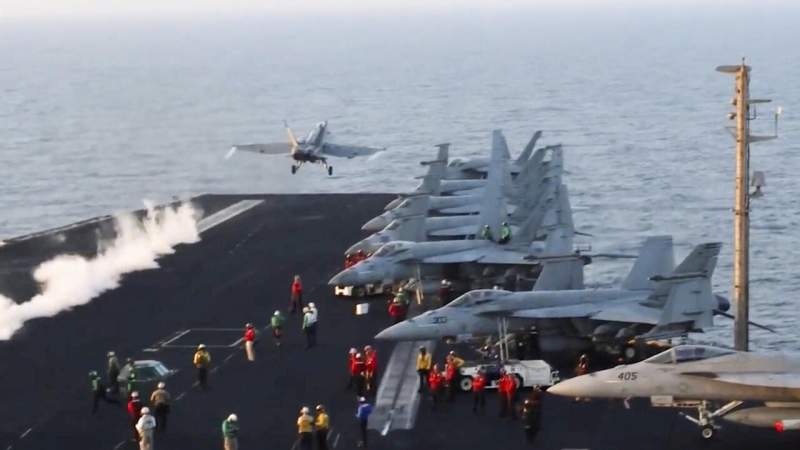US Think Tank: US Aggression on Yemen a Strategic Failure, Costing Billions and Boosting Yemen’s Military Standing

News - Yemen: An American think tank has confirmed that the US aggression against Yemen yielded unclear results and was ultimately abandoned by former President Trump last May, just two months after declaring war in an attempt to protect the Zionist entity.
The Stimson Center, a US-based think tank, reported that following the Zionist attack on Iran on June 13, the Yemeni Armed Forces launched several ballistic missiles at the city of Jaffa—referred to as the capital of the entity, "Tel Aviv"—and targeted the Eternity C, a Liberian-flagged ship en route to an Israeli port.
The center noted that most observers believe the previous US campaign against the Yemenis achieved little military success and, in fact, bolstered the image of the Yemeni Armed Forces. It pointed out that the United States intensified its airstrikes on Yemen in April, following Yemen’s announcement of targeting Israeli ships passing through the Red Sea and the Arabian Sea.
According to the Stimson Center, Sana'a forces inflicted at least $7 billion in losses on the US military, including the destruction of several American drones and two fighter jets—among them an F/A-18 Super Hornet that fell off the back of an aircraft carrier.
The center stated that the US aggression on Yemen was a strategic failure, as the campaign failed to achieve its main objective: meaningfully weakening the military capability of the Yemeni Armed Forces. It also lacked critical on-the-ground intelligence needed to locate and destroy key hidden assets, such as ballistic missile storage facilities.
Similarly, Alex Almeida, lead security analyst at Horizon Engage, a risk advisory firm, told the report’s author that the mission was a failure because the US deployed two carrier strike groups, most of its deployable B-2 bombers, F-35s, and other aircraft—yet failed to shift the military balance.
The Stimson Center added that the US agreement to halt aggression on Yemen angered the Zionists, who had wanted Washington to continue the war.
Susan Dalgren, a researcher at the Middle East Institute, stated: “We don’t know what the Americans promised the Yemenis under the agreement,” adding that if US or Israeli attacks on Iranian nuclear or other strategic targets resume, the Yemeni Armed Forces may move to close the Bab al-Mandab Strait leading to the Suez Canal—at the same time Iran could shut the Strait of Hormuz in the Arabian Gulf—triggering a severe energy crisis with enormous costs to the global economy.
In early 2025, the United States launched a direct military campaign against Yemen, aiming to protect Israeli maritime interests and respond to escalating attacks by the Yemeni Armed Forces on the Zionist entity. The intervention, however, quickly proved to be a costly miscalculation—both militarily and politically.
Initiated under US President Donald Trump, the US campaign intensified in April, following Yemen's declaration of a blockade on Israeli-linked vessels crossing the Red Sea and Arabian Sea. The campaign included heavy airstrikes and the deployment of two US aircraft carrier groups, along with advanced stealth bombers and fighter jets. Despite this display of force, the operation failed to weaken Yemen’s military capabilities or deter its naval operations.
-
11:22
The Israeli Jerusalem Post: Israel must recognize that Yemenis can adapt and strike unexpectedly, with similar incidents likely to occur in the future.
11:22
The Israeli Jerusalem Post, citing Israeli officials: “We observed a significant decline in Israel’s air defense capabilities following the 12-day war with Iran.”
11:22
The Israeli Jerusalem Post: The Yemeni drone strike on Ramon Airport used complex surprise tactics, Air Force details remain unclear.
11:22
The Israeli Jerusalem Post: The strike on Ramon Airport is considered one of Yemen’s most serious attacks.
11:01
Former Israeli Defense Minister Lieberman urges full Mossad operations in Yemen, support for all Sana'a opponents.





